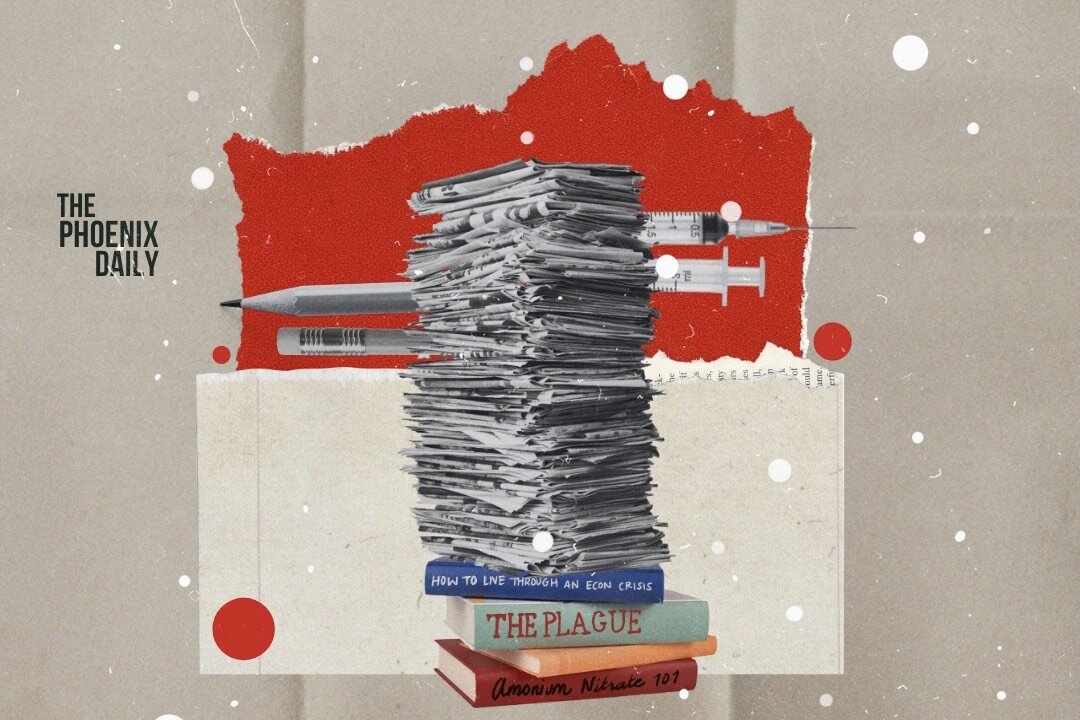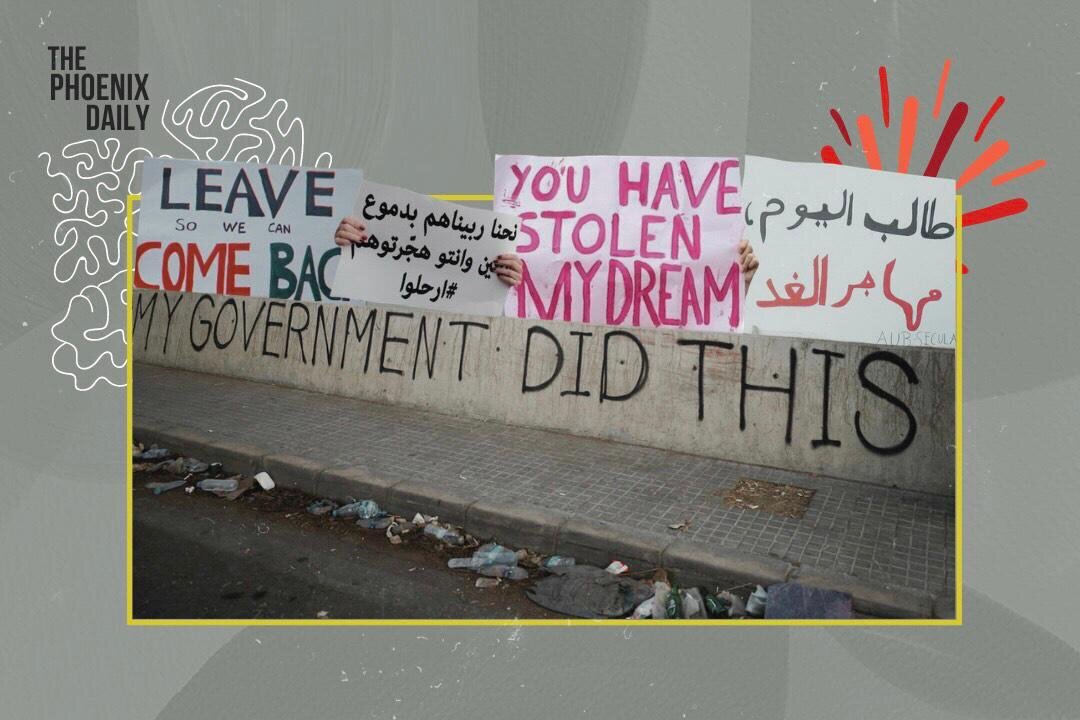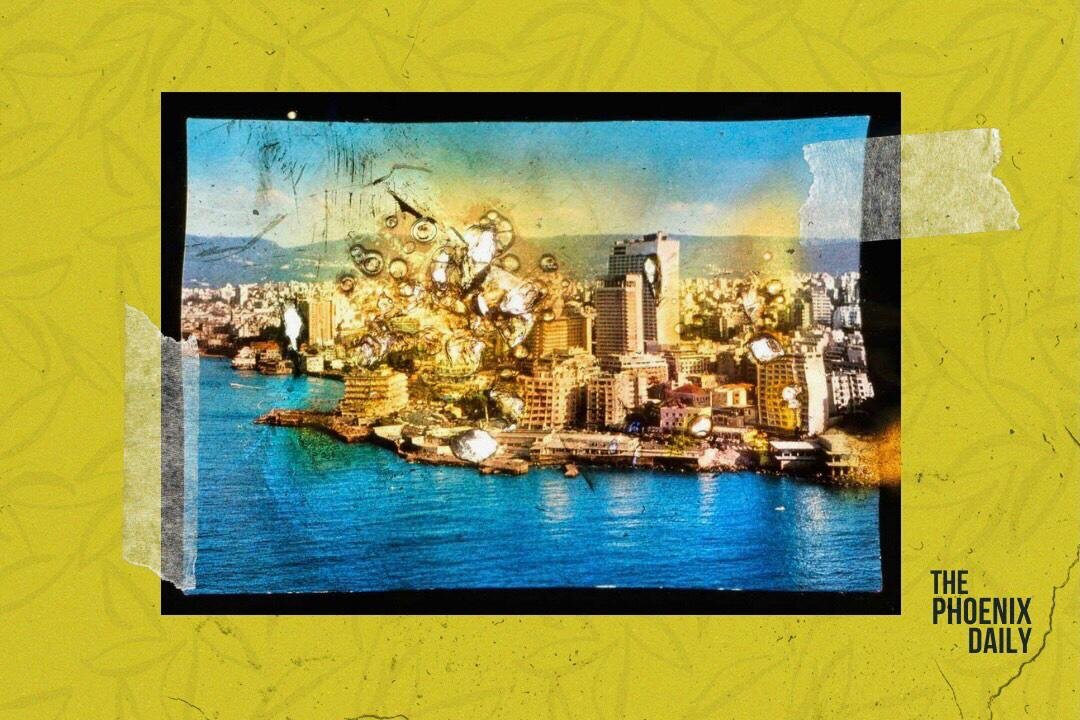
National News, Analyses & Opinions

Schools and Universities in Lebanon in 2021 - The country’s crises threaten their sustainability
Opinion analysis by Maria Wehbe, Staff Writer
Over the past year and a half, people all over the world have been faced with the unpredictable and tragic threat of the COVID-19 pandemic that wrecked countries and tore families apart. Yet, in the case of Lebanon, the COVID-19 pandemic is one big problem among many others, and for some citizens, isn’t even one to begin with. From a deadly explosion that rocked the capital city of Beirut, to the hyperinflation, to the economic crisis, to the fuel crisis, to the shortage of medication and basic necessities, and the list goes on: the country is truly one that is in absolute crisis. One sector that particularly took a very big hit was the education sector: teachers and professors are fleeing the country, one after the other, in the hope of finding better opportunities abroad. Some schools and universities are being threatened of closing down and there is a limited amount of internet connection to conduct classes online and there is a limited amount of fuel to go to schools and universities to conduct classes in-person. And so, the question is this: will schools and universities be able to remain open this academic year, or will they succumb to the various crises that are taking the country by storm?

Multiculturalism in Lebanon - The Sectarian Cleavage at the center of the Lebanese Political Distress
Opinion policy analysis by Anthony Ahrend, Featured Writer
On September 16th, 2012, Pope Benedikt XVI praised Lebanon upon his visit there for its 18 different sects that all live together within the same territory. Yet, do they really? Little did he know, that is not the case. With that being said, what are some of the consequences of this sectarian break- up? It is important to take a look at the political participation in Lebanon and explain why the “Thawra” was unsuccessful.

Women in Displacement - Stories of Syrian Refugees in Lebanon
Opinion piece by Carla Akil, Visiting Contributor
Although war is typically associated with men, little light has been shed on the struggles that women and children bear as a result of war. This article reviews a film entitled “Not Who We Are” by Carol Mansour that gives us an insight into the lives of five Syrian refugee women that share their experiences of loss, displacement, and daily struggles in a harsh and often unfriendly environment in Lebanon.

The Lebanese Brain Drain: A never-ending cycle of immigration and separation
Opinion analysis by Maria Wehbe, Featured Writer
So many Lebanese citizens are fleeing the country in the hope of finding a better life abroad: as of September of 2020, about 380 000 Lebanese are said to be considering leaving their home country as a result of the current economic and political meltdown. With that being said, what are the effects of Brain Drain on the country in question? Well, here are a few: loss of tax revenue, a shortage of important and skilled workers, loss of potential future entrepreneurs, loss of innovative ideas along with many other disastrous repercussions. In the long run, it reduces human capital, economic growth, demographic shifts and increases the cost of public goods.

The Lebanese Identity Crisis - The oldest crisis of them all
Analysis by Myriam Akiki, Staff Writer
Lebanon turned 100 years old just last September. However, the 1st of September, 1920 only saw the birth of Lebanon as an actual nation-state, in what was then called the State of Greater Lebanon. One century later, it is now the Lebanese Republic: a failed state and the crossroad of more crises than one can count on two hands. The oldest crisis of them all may well be the one we’ve ignored for too long and the reason for all the turmoil that is happening today in the country.

The Memorialization of the Lebanese Civil War Through Art Production - Why is art important in transitional justice? And how have Lebanese artists memorialized the civil war?
Analysis by Audrey Azzo, Visiting Contributor
Transitional justice is an interdisciplinary field of study that focuses on post-conflict societies and encompasses political science, economy, sociology amongst other disciplines related to social sciences. When theorizing transitional justice, scholars overlooked the importance of art in the mechanisms employed. In 2012, The ICC found homas Lubanga Dyilo guilty of war crimes in the Democratic Republic of Congo and for the first time since the emergence of the field, the court insisted on the use of art as a means of reparation to the victims.
In the aftermath of the Lebanese civil war, little to none of the transitional justice mechanisms that we know of were employed, and the necessary task of commemorating the war was left to the civil society. The essay focuses on the importance of art in transitional justice and provides examples of art productions exhibited by prominent artists in the years following the uncivil war.

